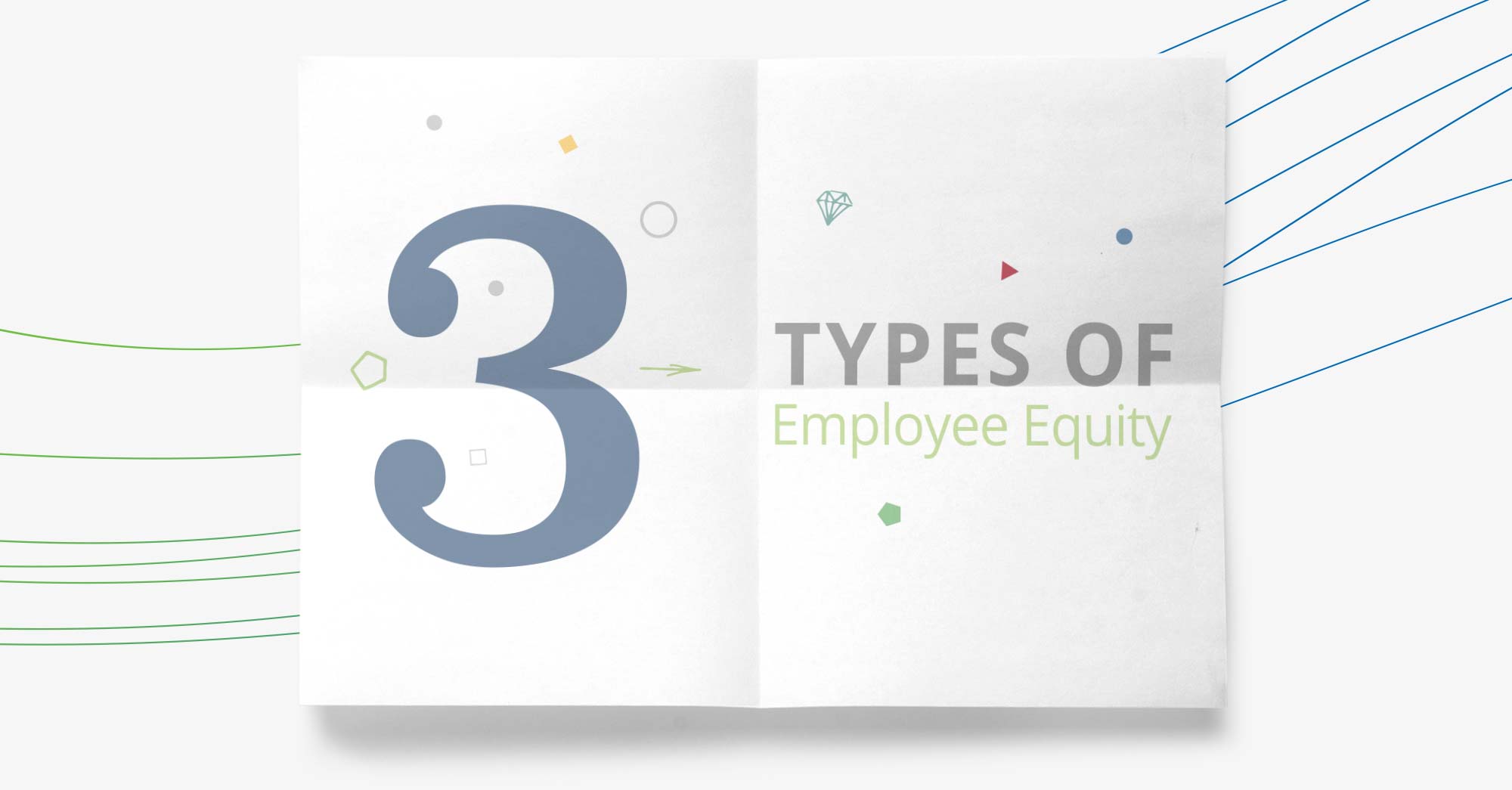The world is changing rapidly, but one thing isn’t. Employee ownership is still one of the best tools that companies have at their disposal to help with recruitment and retention. Offering equity, particularly at a successful or pioneering new company, can far exceed the financial rewards of just a salary, or traditional cash bonuses.
If you’re being recruited to a company, you’re most likely going to be offered equity. But there are a few different forms of equity, and they can sometimes be confusing to people who have not encountered them before or don’t know anything about equity in general. And if you’re currently recruiting employees to your company, you might not understand why your company offers the equity they do – why it’s better than other offers the recruit might have, for example.
In this post, we’re going to break down the three most common types of equity that companies offer (ISOs, NSOs and RSUs) and what they mean. Let’s start with the two types of stock options, ISOs and NSOs.
But before that, here are a few quick definitions, so everybody is on the same page.
Stock Options
Stock options give the recipient the right to purchase (in the future) a certain number of stocks in their company, at a fixed price. (The fixed price is usually the stock price at the time they’re granted.) This means that as the price rises over time, your fixed price stays the same, and after a while, you can buy (exercise) the stock for a low price, and sell it for the current, higher price. To put it another way, options are a way to buy low, sell high, based on your company’s success.
Exercise
Exercising an option means that you purchase it. When you exercise an option, it becomes stock that you own, and can then sell.
Vesting
Most options require a time investment on the part of the employee. In other words, companies don’t want to hire somebody and give them options, only to see them quit two months later. So, there is a waiting period called vesting, between the time you are granted an option and when you can exercise it.
What is an ISO?
An Incentive Stock Option, or ISO, is a stock option that qualifies for special tax treatment. This means that you’re not required to pay tax when you exercise the options.
If you don’t sell the stock right away after exercising, and hold onto it for at least a year, then you don’t pay tax until you sell the stock – and even then, you pay capital gains tax instead of a higher income tax.
If you sell the stock immediately after exercising, then the ISO loses its special tax treatment, and you are required to pay income tax. So, there is an incentive to hold on to the ISO before selling it – especially in conjunction with the rise in stock price over time.
What is an NSO?
A Non-Qualified Stock Option (NSO) is much like an ISO, in that it is a stock option. However, unlike ISOs, NSOs don’t qualify for special tax treatment. This means that you pay tax when you exercise and when you sell the shares.
As opposed to ISOs, there is an incentive to sell the options immediately after exercise. If you hold on to the stock, then you will be liable for capital gains tax. However, this cost has to be weighed against the expected rise of the stock price.
Additionally, there are two forms of capital gains tax – short-term and long-term. If you sell your shares after less than a year, you’ll pay short-term capital gains tax, which is generally higher than long-term capital gains tax. So, if you’re going to hold on to them, it’s generally best to wait for longer than a year.
What is an RSU?
A Restricted Stock Unit, or RSU, is different from ISOs and NSOs, in that it’s not an option at all, but an actual stock unit. This means that you’re not required to exercise anything – after you meet the agreed requirements (and the RSUs vest) you simply receive the stock and pay the applicable taxes.
Depending on the company and the position, there can be a few different types of requirements – time-based, performance-based, or some combination of the two. After you meet the requirements, the stock is yours. Which means that you have to pay income tax on the market value. But it doesn’t mean that you can necessarily sell right away.
If your company is public, you can sell whenever you’d like, within your company’s trading windows. If it’s a private company, you generally need to wait for an acquisition or an Initial Public Offering. Or, you can hold on to your stock and wait for the stock price to rise further. This would mean you might need to pay capital gains tax on the increase in value.
Which is best?
There is no simple answer to the question, which one of these awards is best?
From an employee perspective, there are benefits to all of these awards, and how valuable each one is depends more on the success of the company and the size of your award. Not to mention, your jurisdiction and applicable tax laws.
From an employer’s perspective, it all depends on the size of the company, and what stage of the lifecycle it is at. And different roles require different pay packages as well.
You might not know the answers just by looking at the article above, but it’s crucial to understand how each award can bring out the best in your employees, and guide your company towards your specific goals.
We can help with that. With an award-winning team of equity compensation experts, we can help guide you through the process, and make sure you pick the best option. Contact us today.
Please Note: This publication contains general information only and Global Shares is not, through this article, issuing any advice, be it legal, financial, tax-related, business-related, professional or other. The Global Shares Academy is not a substitute for professional advice and should not be used as such. Global Shares does not assume any liability for reliance on the information provided herein.








